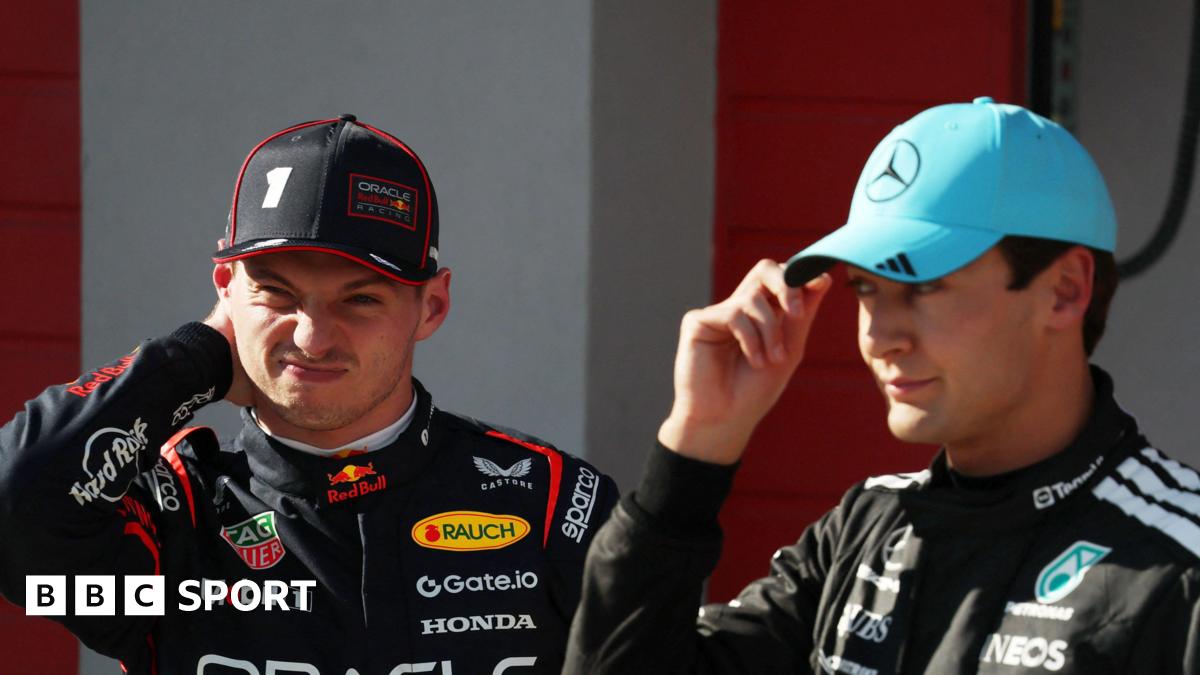Verstappen's Dilemma: The Red Bull Exodus and Mercedes' Tempting Horizon

"Verstappen's Dilemma: The Red Bull Exodus and Mercedes' Tempting Horizon"
In the high-octane world of Formula 1, where allegiances are as fluid as the fuel that powers these engineering marvels, the potential shift of Max Verstappen from Red Bull to Mercedes has set the paddock abuzz. On paper, Verstappen is firmly tethered to Red Bull, with a contract extending through 2028. Yet, whispers of clandestine discussions between Verstappen's camp and Mercedes suggest a possible seismic shift in the F1 landscape.
A Red Bull spokesperson has reiterated, "Max has a contract to 2028," underscoring the team's commitment to their star driver. However, as is often the case in the world of elite motorsport, contracts can be as malleable as the strategies that unfold on race day. Red Bull's motorsport advisor, Helmut Marko, expressed his "great concern" back in April regarding Verstappen's future, a sentiment echoed in his March conversation with BBC Sport: "We know that if we don't deliver for Max, all the top drivers have performance clauses in their contract."
For Verstappen, the allure of Mercedes is palpable. Despite clinching four consecutive drivers' titles with Red Bull, the team's recent performance has been less than stellar. The past 18 months have seen a decline from their once unassailable position. Verstappen's commanding lead last season allowed him to fend off a late surge from McLaren and Lando Norris with ease. However, this season has painted a different picture, with McLaren emerging as the faster contender, leaving Red Bull struggling to mount a consistent challenge.
The departure of design maestro Adrian Newey to Aston Martin and the exit of long-time sporting director Jonathan Wheatley to Sauber have left significant voids in Red Bull's ranks. Former Red Bull driver Sergio Perez, who exited the team under contentious circumstances, remarked in a recent podcast that Red Bull's decline began with Newey's departure. It's no wonder that Verstappen's confidence in Red Bull's ability to produce a competitive car has been shaken.
Compounding these challenges are the impending regulatory changes in F1, set to revolutionize both car and engine designs. The shift to engines with 50% of their performance derived from electrical components represents a formidable challenge. Red Bull's endeavor to develop its own engine is fraught with difficulties, while Mercedes is widely believed to be leading the charge in this new era of engine technology.
Verstappen is thus faced with a conundrum: remain with a team whose future prospects are uncertain, or join Mercedes, a team that appears poised to dominate the forthcoming regulatory landscape. The stakes are high, and the decisions made in the coming months could reshape the competitive dynamics of Formula 1 for years to come.
🔮 Fortellr Predicts
Confidence: 85%
The ongoing uncertainty regarding Max Verstappen's future in Formula 1 could precipitate significant shifts in the competitive dynamics of the sport. First and foremost, Verstappen's potential move to Mercedes opens the door for a dramatic shifting of allegiances. Should the performance clause in his Red Bull contract be triggered, the likelihood of his departure increases substantially. Mercedes, keen to capitalize on the forthcoming 2026 regulation changes, has a vested interest in securing Verstappen as a key asset to drive their competitive resurgence. Any agreement would almost certainly cause an upheaval in the F1 driver market, prompting rival teams to reevaluate their own strategies to remain competitive. Red Bull's internal turbulence, marked by the loss of high-profile personnel and potential performance challenges, could be further exacerbated if Verstappen signals his intention to leave. This may lead to a degradation of team morale and a potential exodus of other key staff. From a market and economic perspective, the implications are profound; Red Bull's brand valuation could suffer due to uncertainty, while Mercedes might see an uptick in sponsorship interest given their bolstered competitive prospects. Ultimately, Verstappen's decision will reverberate across the sport, influencing not only driver movements but potentially the pathways of technological and engineering evolutions as F1 teams recalibrate to a new racing paradigm.